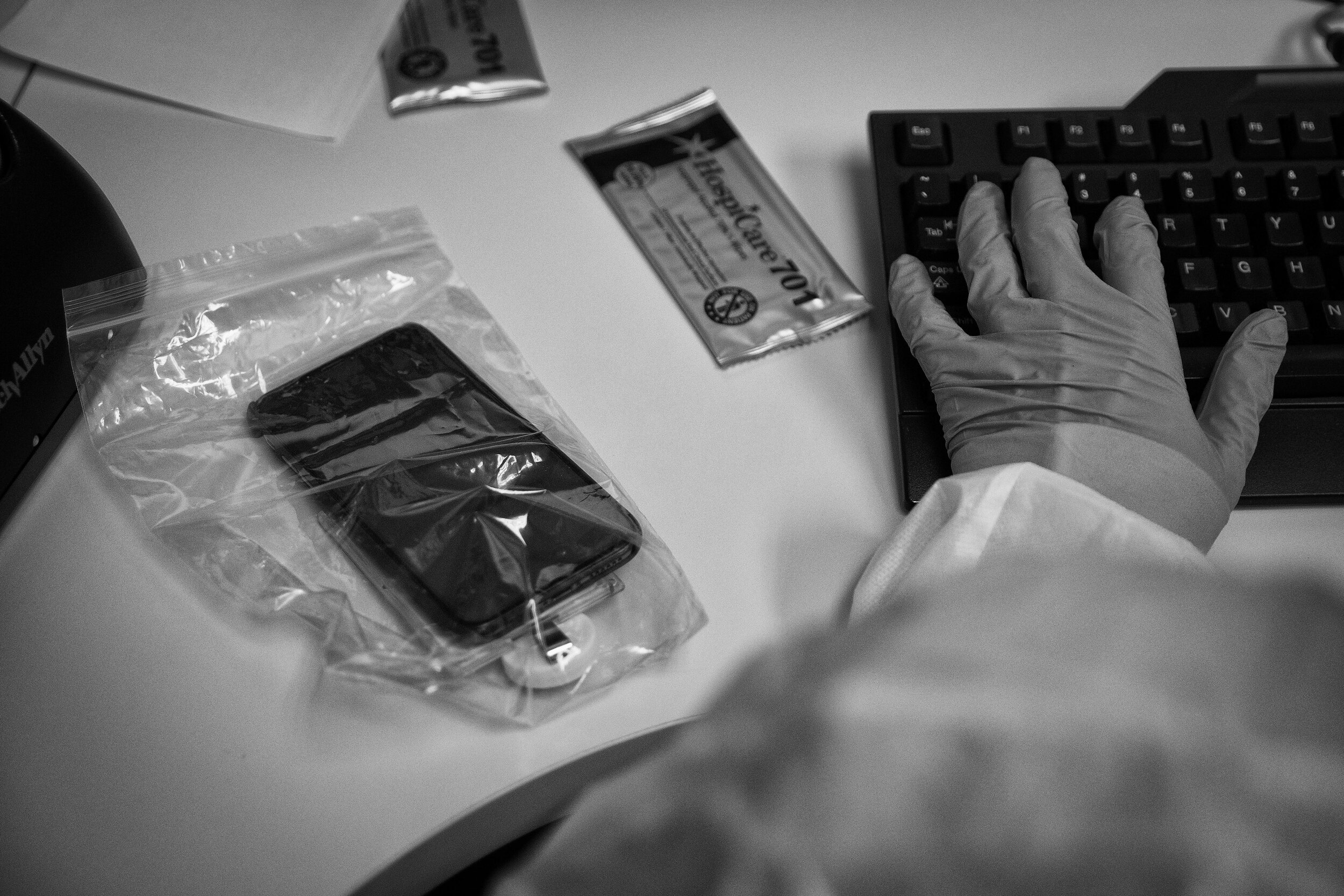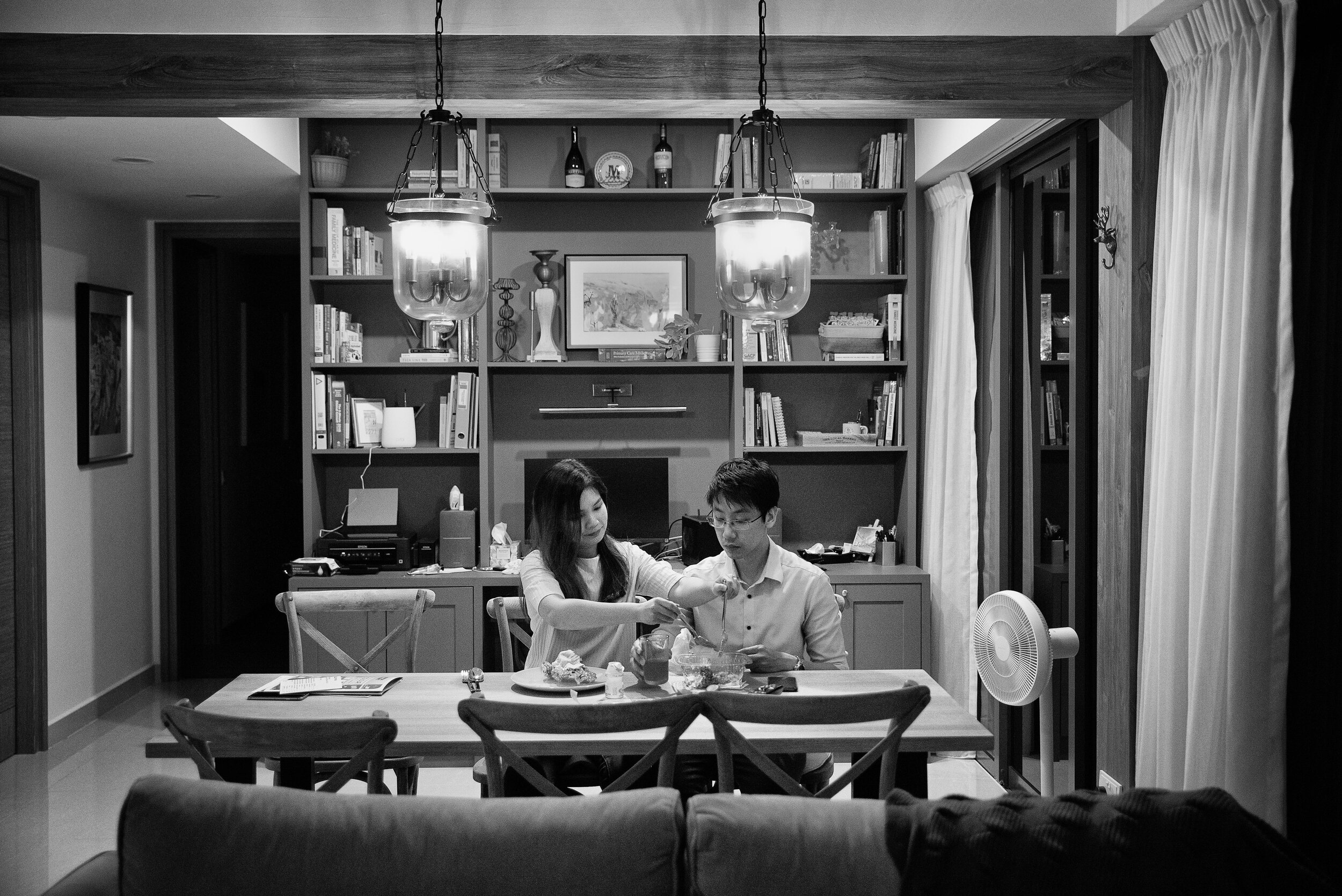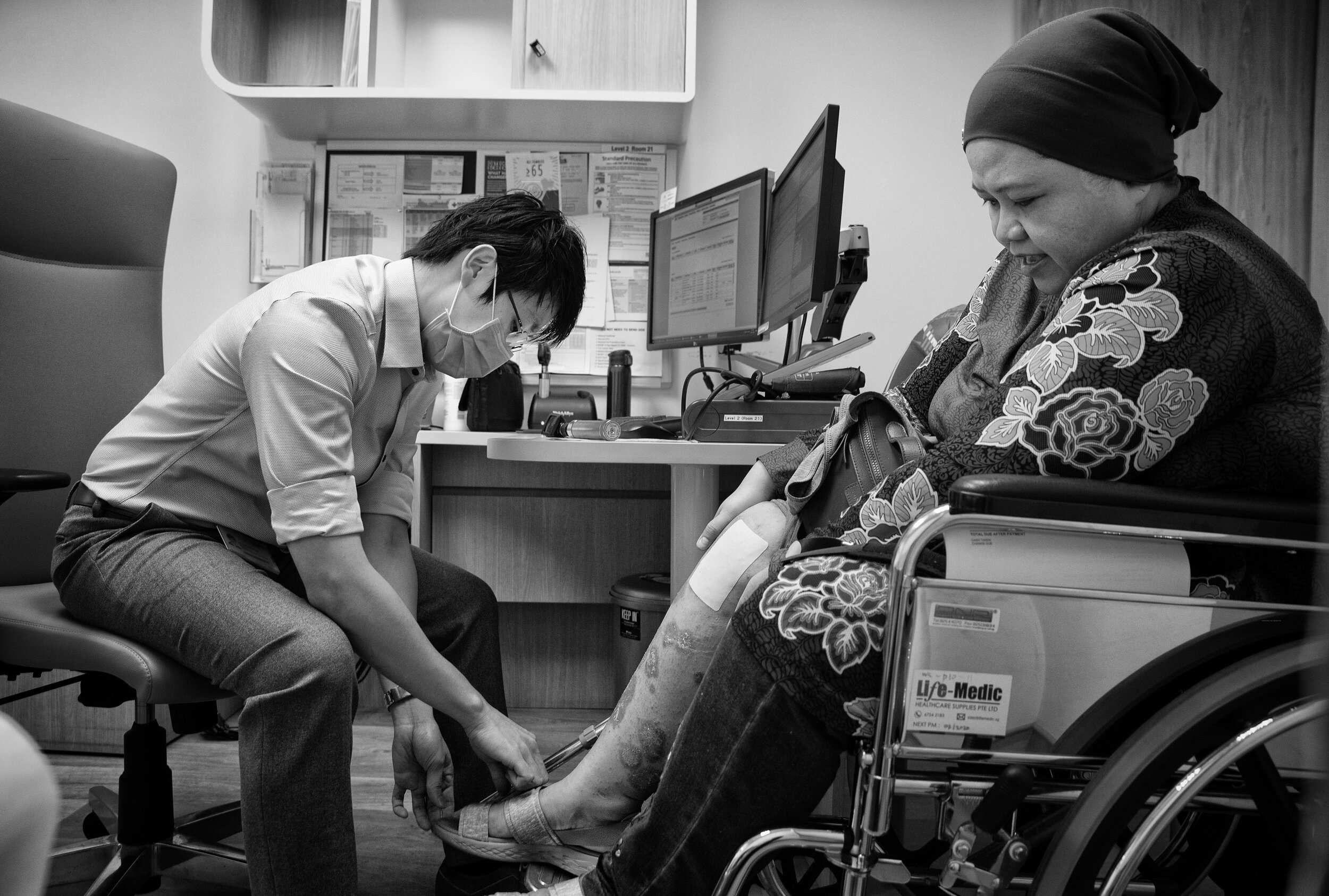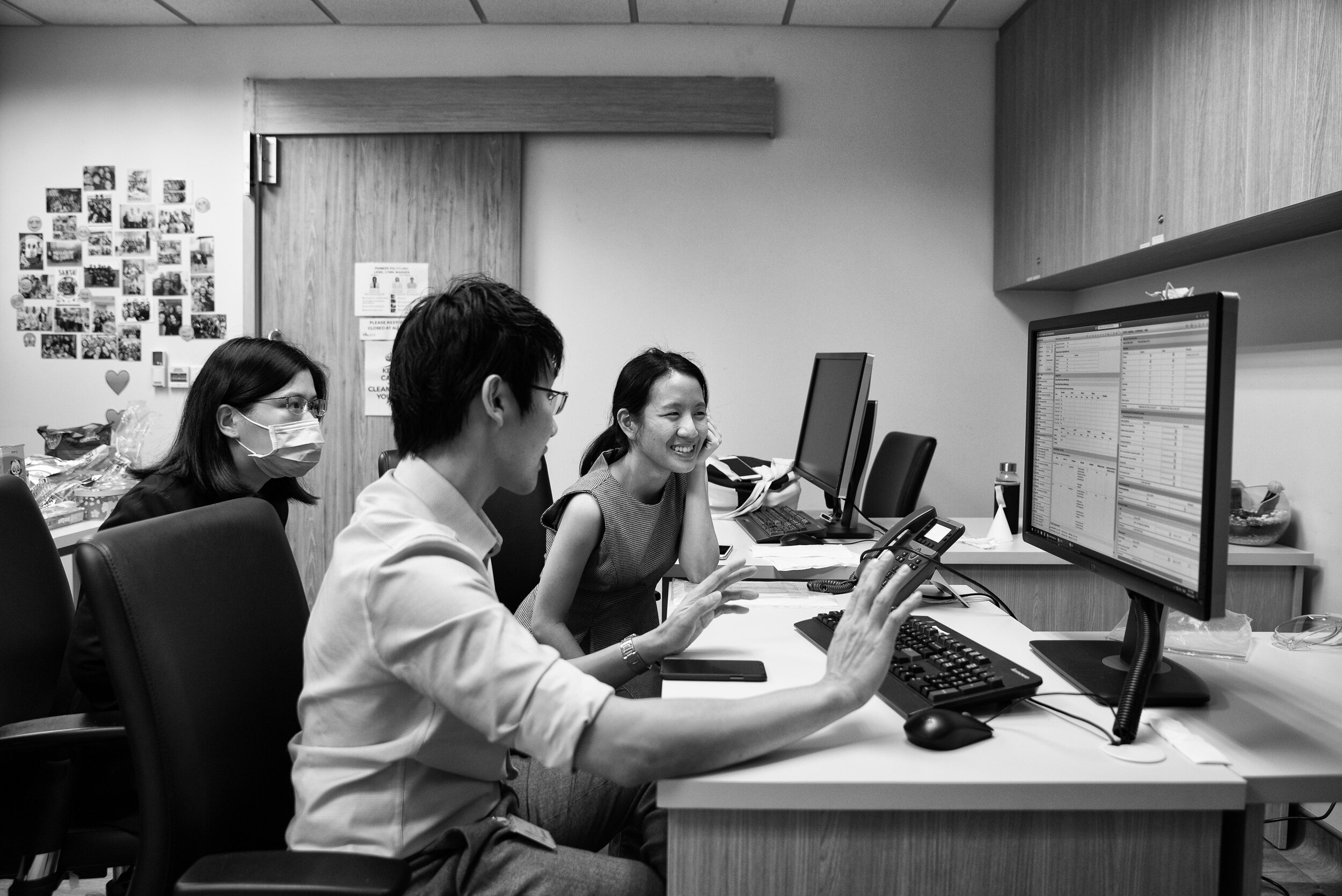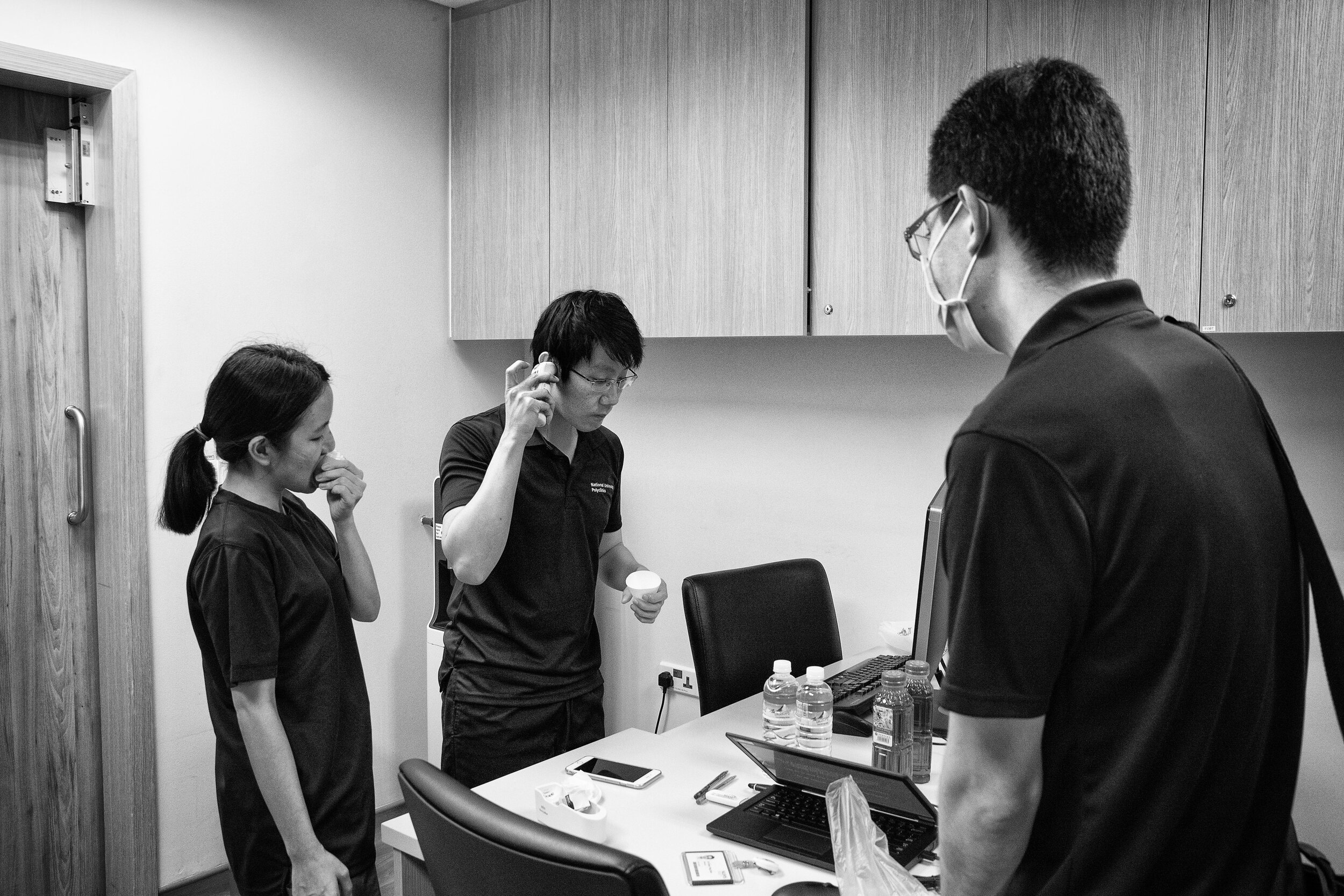On the front lines of a pandemic
When the SARS outbreak occurred in 2003, Dr Lawrence Lam, 34, was a junior college student who never imagined being on the front lines of an epidemic. In 2020, he was a family physician at Pioneer Polyclinic in Jurong West amidst the Covid-19 pandemic, which upended the clinic's routine.
Dr Lawrence Lam adjusting his surgical gloves as part of his personal protective equipment, which also consists of a medical gown and an N95 mask, when working in the fever zone at the Pioneer Polyclinic in Jurong West.
By: Shintaro Tay
SINGAPORE – When an outbreak of severe acute respiratory syndrome occurred in 2003, Dr Lawrence Lam, 34, was a junior college student who never imagined being on the front lines of an epidemic.
Today, however, he is a family physician at Pioneer Polyclinic in Jurong West and on the front lines of the coronavirus outbreak, which has upended the clinic's routine.
Patients with fever and respiratory symptoms are now segregated in the fever zone, while the remaining patients are placed in the non-fever zone. He works on rotation between the zones.
Dr Lam using a blood pressure monitor to assess Mr Muhammad Arrafi Anuar, 23, a full-time national serviceman, in the fever zone.
When working in the fever zone, he has to don personal protective equipment and is mostly confined to the polyclinic, instead of the normal office attire and surgical mask that he wears when he is working in the non-fever zone.
In February, one of his patients was confirmed to have Covid-19.
Immediately, he sent a text to his wife Ang Pei Yi, 33.
Dr Lam washing his hands with soap after removing his personal protective equipment. He has to adhere to a strict hygiene regimen and showers as soon as he gets home
Dr Lam's phone and access pass are kept inside a Ziploc bag to keep them clean.
"She was a little bit shocked when I told her," said Dr Lam. "I asked whether she wanted to stay at her parents' place for the time being, but she said 'no, it's fine'."
Ms Ang, an accountant, said: "I was worried, but I trust that he takes good care to protect himself and the people around him. We are in this together."
Dr Lam removing his medical gown alongside Dr Valerie Teoh in the de-gowning room.
As a precaution, Dr Lam stayed home for a week. His worried parents checked in on him regularly.
Since then, the couple, who do not have children, have continued to spend most of their free time at home cooking, watching television or reading. Dr Lam has also gone back to work.
Dinner time is especially important for Dr Lam and his wife Ang Pei Yi - who do not have children - as they discuss their day. Most of their free time is now spent at home cooking, watching television or reading.
"Being a doctor in a polyclinic, you get to see the widest variety of Singaporeans from all income groups and walks of life with no discrimination," he said.
Dr Lam assessing six-year-old Ilia Arisha Mohamad Sufian with an ophthalmoscope.
Many are elderly patients with multiple medical conditions.
Housewife Nurul Jannah Abdullah, 48, is a regular patient as she has psoriasis, a skin condition.
She said: "Not many doctors serve me like he does. He makes me feel very comfortable, just like any normal person and not like a sick person. He makes me feel like he is a friend or family member I can talk about anything with."
Housewife Nurul Jannah Abdullah, 48, has been seeing Dr Lam regularly for her skin condition psoriasis.
Dr Lam said his approach with elderly patients was shaped by his own experience caring for his paternal grandfather, who died five years ago.
Dr Lam, like many other doctors, refrains from touching patients unnecessarily due to the coronavirus outbreak. Thus, he scrutinises them more carefully. Without proper examination, he said, he would "not be able to reassure the patients properly". When working in the non-fever zone, he wears normal office attire and a surgical mask.
In his work, Dr Lam also teaches younger doctors at the polyclinic.
Besides seeing patients, Dr Lam regularly takes time to teach and share new findings with younger doctors like Dr Teoh, 26, and Dr Wong Hong Hui (wearing mask), 28.
One of them, Dr Valerie Teoh, 26, said: "He's very helpful and sometimes if I have questions, he will stay after work to go through things. I really appreciate this."
However, Dr Lam's routine of travelling to the National University Hospital to coach his juniors for their medical examination has stopped, as medical staff may not cross institutions now.
Dr Lam is pictured taking his temperature here. After a day at work, Dr Lam will meet up with fellow team-members Dr Valerie Teoh (left) and Dr Chua Ying Xian, 34, to discuss the patients they encountered.
He also worked with a team of doctors on a paper published in a medical journal that aims to inform doctors of the possibility of a false positive dengue test in Covid-19 patients.
Marks on Dr Lam's face from wearing a N95 mask. In February, one of his patients was confirmed to have Covid-19. "I was quite happy that we managed to find a patient who was positive and send him off to the hospital. If we had let the patient go undetected, the chance of spread would have been a lot higher," said the 34-year-old.



